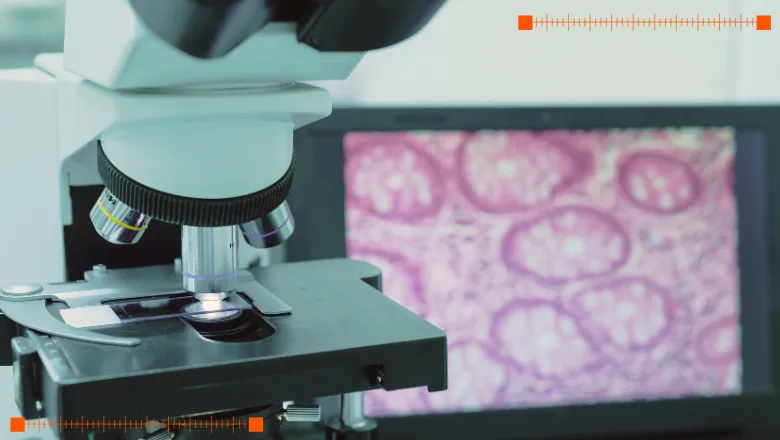This study represents, to our knowledge, the first reported instance of a closed-loop system in which experimental results guided an LLM, and in turn, LLM outputs - interpreted by human scientists - guided further experiments. It demonstrates how AI can be woven directly into the iterative loop of scientific discovery, enabling adaptive, data-informed hypothesis generation and validation in real time.
Dr. Hector Zenil, co-author, Associate Professor and Senior Lecturer at the School of Biomedical Engineering and Imaging Sciences at King’s College London
05 June 2025
AI Helps Discover Surprising Drug Combos for Breast Cancer Treatment
Artificial intelligence joins scientists in the lab in a groundbreaking team-up to find new cancer therapies using existing drugs.

What happens when human scientists team up with artificial intelligence (AI) to fight breast cancer? A group of researchers from the University of Cambridge, King’s College London, and Goldsmiths have shown that large language models (LLMs) like GPT-4 can be harnessed not just to process scientific knowledge but to generate it in tandem with human scientists.
In a new study published in the Journal of the Royal Society Interface, scientists worked side-by-side with a powerful AI system, GPT-4, to uncover unexpected combinations of everyday drugs that could help treat breast cancer. These aren't new, experimental treatments, many are drugs already approved for other conditions, like lowering cholesterol or treating alcohol dependence.
One example is to use a combination of simvastatin, a common cholesterol-lowering drug, and disulfiram, used to help people avoid alcohol. Lab tests showed that this mix had a strong effect on breast cancer cells, suggesting real promise for further study.
Rather than sticking to known cancer drugs, the AI focused on affordable, FDA-approved medications not normally linked to cancer, increasing the chances these treatments could be fast-tracked for real-world use.
What makes this research truly groundbreaking is its collaborative nature. The AI generated unconventional combinations, scientists validated the suggestions, tested them in the lab and gave the AI feedback. The AI then refined its ideas based on that real-world data. This back-and-forth, called a “closed-loop system,” could dramatically speed up the process of scientific discovery.
In total, the AI helped researchers identify six promising drug pairs, all of which were tested in the lab. The team hopes this method will lead to new, cost-effective treatments not just for cancer, but other complex diseases as well.
Supervised LLMs offer a scalable, imaginative layer of exploration. Their capacity to propose hypotheses across disciplines, incorporate prior results, and collaborate across iterations marks a new frontier in scientific research. The AI scientist is no longer a metaphor without experimental validation. It can now be a collaborator in the full cycle of a wet lab.
Prof. Ross King, co-author, Department of Chemical Engineering and Biotechnology, University of Cambridge.
This study could mark the beginning of a new era where scientists and AI co-pilot the future of medicine, working together from hypothesis to experiment and back again.
Read the full paper here.

